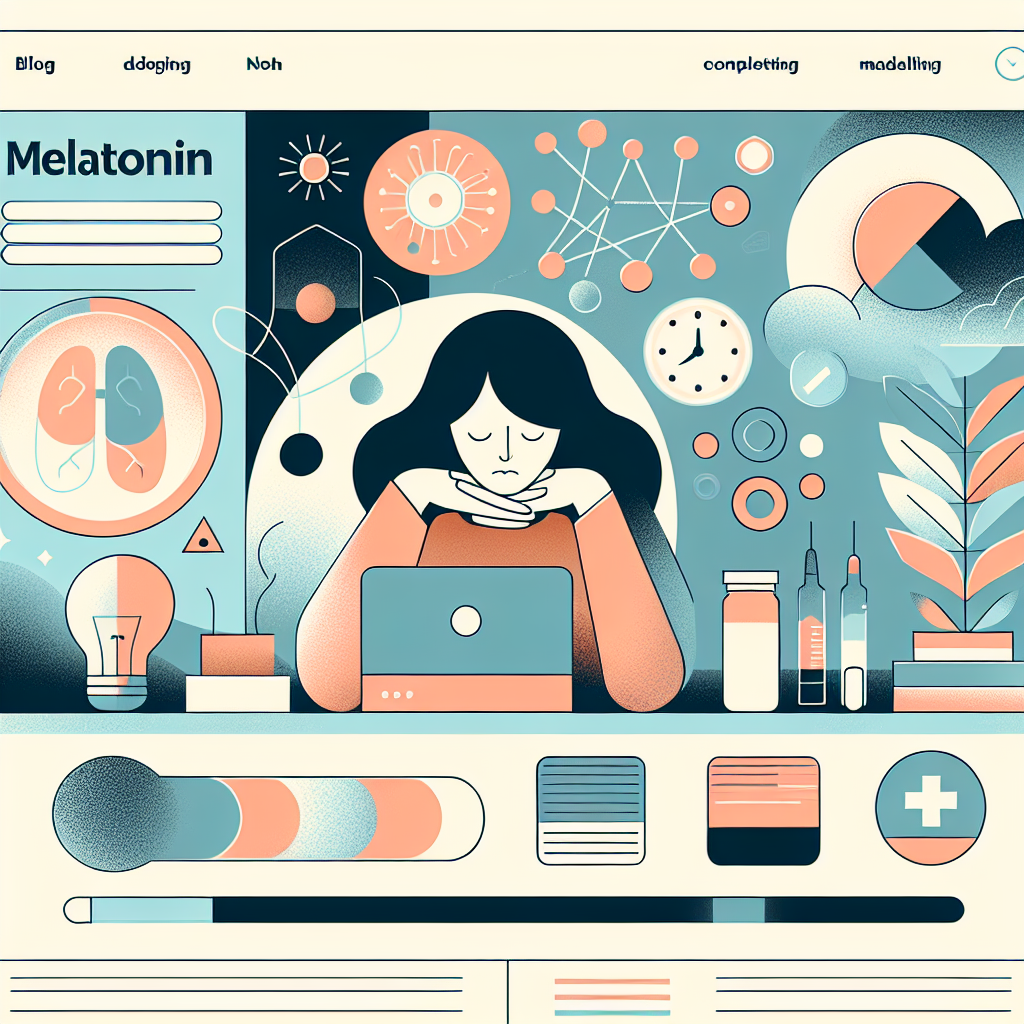Many people reach for over-the-counter remedies when sleepless nights and a racing mind amplify worry. If you’ve wondered, can melatonin help with anxiety, you’re not alone — the supplement is commonly promoted for sleep but is sometimes suggested to ease restless thoughts too. This article reviews what science says, how melatonin might affect mood and arousal, practical considerations, and when to speak with a clinician.
Can melatonin reduce anxiety symptoms?
Melatonin is a hormone produced by the pineal gland that helps regulate the sleep-wake cycle. Its primary clinical use is to shift circadian rhythms and help with insomnia or jet lag. Because poor sleep and anxiety are tightly linked, some researchers and clinicians have asked whether melatonin could also improve anxiety by restoring sleep or through other neurochemical effects.
The question does melatonin work for anxiety has been explored in small studies and in specific contexts. For example, people undergoing surgery or medical procedures sometimes receive melatonin and report lower pre-procedure anxiety. In psychiatric or chronic anxiety populations, evidence is mixed: some trials find modest benefits, while others show little difference from placebo. Many of these studies are short-term and use varying doses and formulations, which makes firm conclusions difficult.
How melatonin might influence anxiety and sleep
There are a few plausible mechanisms. First, melatonin promotes sleep onset and improves sleep quality for some people; better sleep in turn can reduce daytime anxiety and improve emotional regulation. Second, melatonin influences receptors and brain pathways that modulate arousal and stress responses, though these effects are not as well understood as its role in circadian signaling.
Because anxiety and insomnia feed each other, a treatment that helps one can indirectly help the other. That means melatonin’s most reliable benefit may be through improving sleep rather than acting as a direct anxiolytic (anti-anxiety) medication.
What the research shows
Randomized controlled trials vary in population, dose, and outcomes measured. Some studies demonstrate reduced anxiety scores in perioperative settings or in people with certain medical conditions. Conversely, studies in generalized anxiety disorder or panic disorder have not consistently shown clinically meaningful anxiolytic effects. Quality of evidence ranges from low to moderate, so clinicians often treat melatonin as a potentially helpful adjunct for sleep-related anxiety rather than a primary therapy for severe anxiety disorders.
If you want authoritative background on anxiety disorders, the National Institute of Mental Health provides accessible summaries and guidance: NIMH: Anxiety Disorders.
Practical considerations: dosing, timing, and safety
Typical over-the-counter melatonin doses range from 0.5 mg to 5 mg, though some people take higher amounts. Lower doses are often effective and carry a lower risk of grogginess the next day. Time-release formulations may be helpful for middle-of-the-night awakenings, while immediate-release forms help with sleep onset.
Melatonin is generally well tolerated but can cause side effects such as daytime drowsiness, vivid dreams, or mild digestive upset. It can interact with medications like blood thinners, immunosuppressants, diabetes drugs, and certain antidepressants. People who are pregnant, breastfeeding, or have autoimmune conditions should consult a healthcare provider before use. Always discuss chronic anxiety management with a clinician, since prescription therapies and psychotherapy are evidence-based mainstays.
For those exploring alternatives or adjuncts to prescription anxiolytics, it’s worth reading more about non-pharmaceutical approaches and safe over-the-counter options; this overview may be a useful starting point: descriptive anchor text.
When to see a professional
If anxiety is severe, persistent, interfering with daily life, or accompanied by suicidal thoughts, seek immediate medical attention. For ongoing symptoms, a primary care provider or mental health specialist can assess for anxiety disorders, recommend psychotherapy (such as CBT), consider medications when appropriate, and help coordinate safe use of supplements like melatonin.
- Melatonin can help by improving sleep, which may indirectly reduce anxiety for some people.
- Evidence that melatonin directly treats anxiety disorders is limited and mixed.
- Use the lowest effective dose, check for drug interactions, and consult a clinician for persistent or severe anxiety.
FAQ: Is melatonin addictive?
No. Melatonin is not considered addictive. It is a hormone supplement and does not create chemical dependence like benzodiazepines or some prescription sleep medications. However, relying on any single strategy without addressing underlying sleep habits or anxiety triggers is not ideal long-term.
FAQ: How long before bed should I take melatonin?
Timing depends on the reason for use. For general sleep onset, taking melatonin 30–60 minutes before bedtime is common. For circadian shifts (e.g., jet lag), timing and dosing may differ. Start with a low dose and adjust with guidance from a healthcare professional.
FAQ: Can I take melatonin with anxiety medications?
Possibly, but consult your prescriber. Melatonin can interact with several drugs and may increase sedation when combined with other central nervous system depressants. Always discuss combinations with your clinician to ensure safety.






